Why College Athletes Can't Drink Energy Drinks
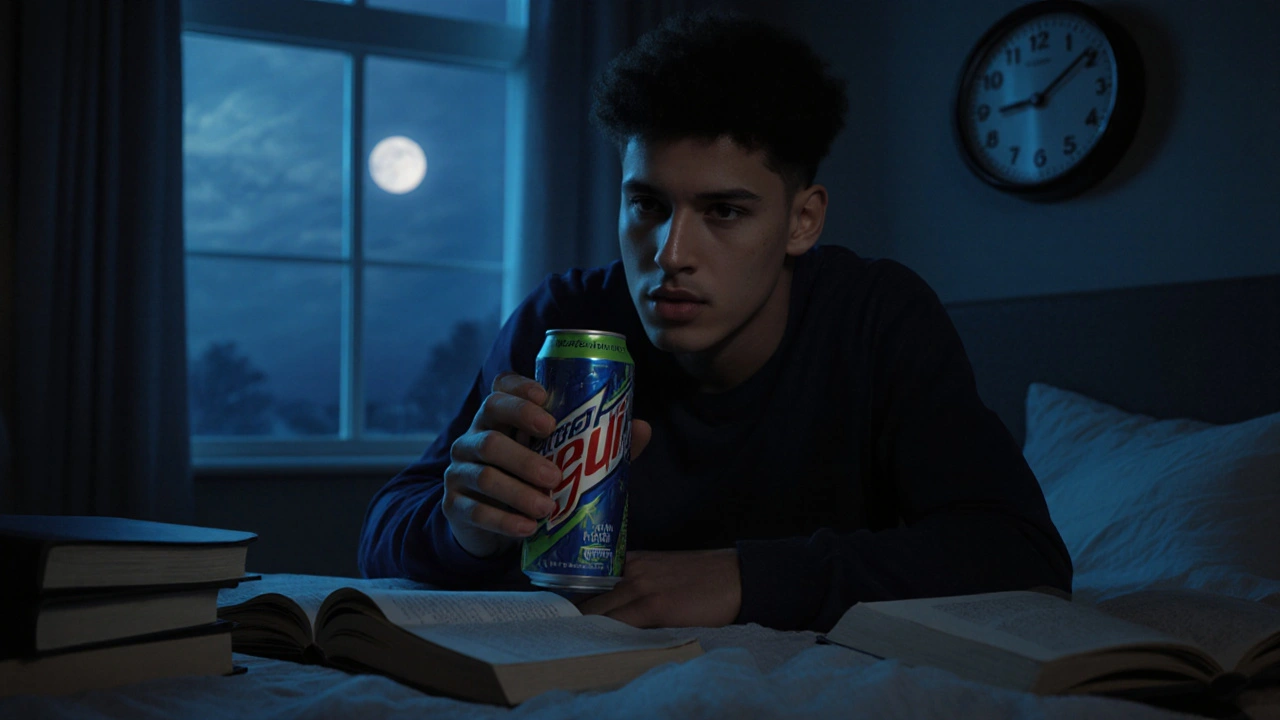
College athletes train harder than most people realize. They wake up before sunrise, lift weights, run drills, attend classes, and study late into the night. Yet, many of them can’t grab a popular energy drink after practice-even if it’s labeled as "natural" or "zero sugar." Why? It’s not because energy drinks are banned outright. It’s because of what’s inside them-and who’s watching.
The NCAA Rule That Changes Everything
The NCAA doesn’t ban energy drinks. It bans specific ingredients. And caffeine? It’s on the list. Not because it’s dangerous in small doses, but because it’s a performance-enhancing substance when taken in high amounts. The NCAA sets a limit: 15 micrograms of caffeine per milliliter in urine. That’s about 1,500 milligrams of caffeine consumed in a short window-roughly the amount in 12 cans of Red Bull or 10 shots of espresso.Most energy drinks contain between 80 and 300 milligrams of caffeine per serving. One can won’t get you flagged. But if an athlete downs two or three before a game-maybe to stay awake after studying or to push through fatigue-it’s easy to cross the line. And the NCAA tests randomly. One positive test means a 365-day suspension from competition.
It’s Not Just Caffeine
Energy drinks aren’t just caffeine and sugar. Many include banned stimulants like synephrine, yohimbine, dimethylamylamine (DMAA), or even illegal compounds disguised as "proprietary blends." These ingredients aren’t always listed clearly. Some brands label them as "natural extracts" or "energy complexes," making them hard to spot.In 2023, a Division I football player tested positive after using a popular pre-workout energy drink that contained DMHA-a compound banned by the NCAA since 2018. The label said "stimulant blend," but didn’t list DMHA by name. He lost his entire season. He wasn’t trying to cheat. He just didn’t know.
Why Do Colleges Care So Much?
Colleges aren’t trying to ruin fun. They’re trying to protect athletes’ health and preserve fairness. Energy drinks can raise heart rate, blood pressure, and body temperature-especially when combined with intense physical activity. In 2022, the CDC reported three college athletes hospitalized for heat stroke after drinking energy drinks during summer training. All three had consumed more than 500 milligrams of caffeine in under two hours.There’s also the issue of fairness. If one athlete uses an energy drink to sharpen focus and another doesn’t, it’s not a level playing field. The NCAA wants competition to be based on training, talent, and discipline-not chemistry.
What Can College Athletes Drink Instead?
You don’t need an energy drink to perform well. Many NCAA teams work with sports dietitians to build safe, legal fuel plans. Here’s what actually works:- Water with electrolytes (like Nuun or LMNT)
- Low-sugar sports drinks (Gatorade Zero, Powerade Zero)
- Black coffee (one cup, 95mg caffeine-well under the limit)
- Coconut water for natural electrolytes
- Whole foods: bananas, oatmeal, peanut butter sandwiches
Some athletes use caffeine tablets-200mg, taken 45 minutes before competition. It’s legal, measured, and tracked. No guesswork. No risk.
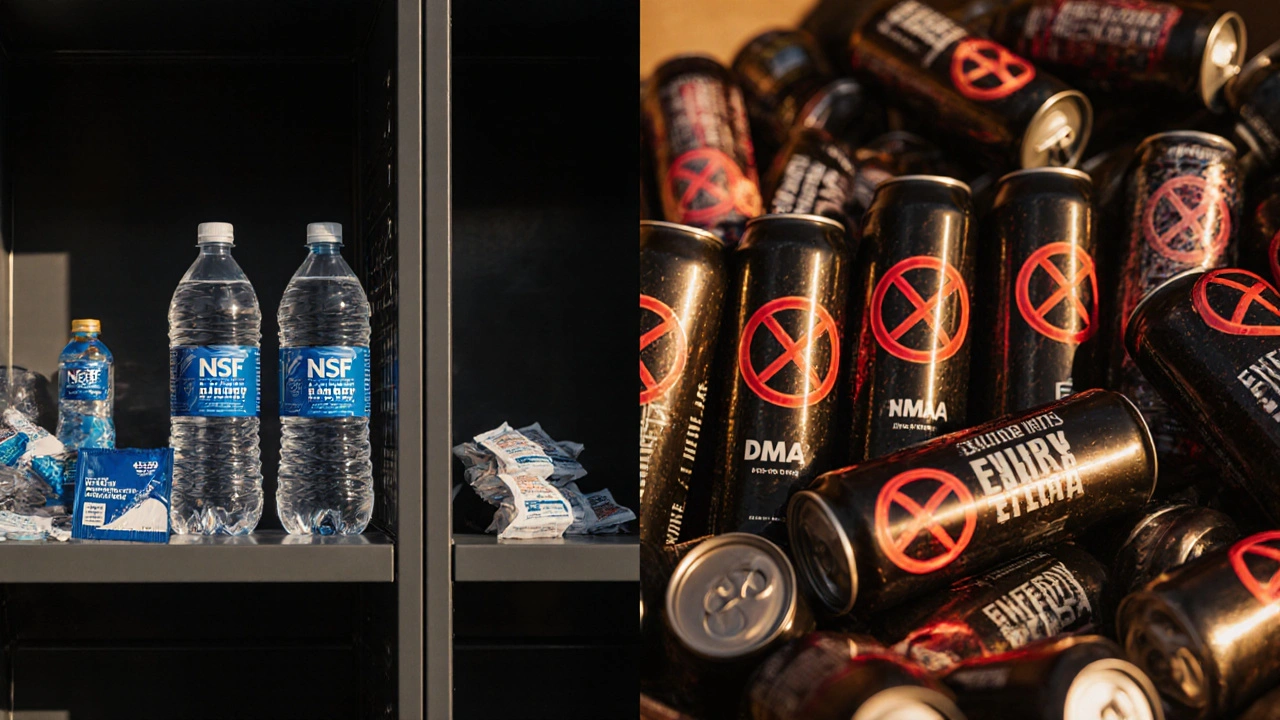
The Hidden Danger: Mixing Energy Drinks with Alcohol
Even though this isn’t directly about performance, it’s a huge issue on campuses. Mixing energy drinks with alcohol is common among college students. The caffeine masks how drunk you feel, leading people to drink more than they should. The NCAA doesn’t test for alcohol, but schools have strict conduct policies. Many athletes have lost scholarships-not because of caffeine, but because of poor decisions made under the influence of mixed drinks.It’s not just about rules. It’s about safety. In 2024, a Division III soccer player collapsed after a party where he’d consumed three energy drinks and two cocktails. He survived, but spent three days in the ICU. His team lost him for the rest of the season.
What About Protein Shakes or Meal Replacements?
Protein shakes, meal replacements, and recovery drinks are fine-as long as they don’t contain banned stimulants. But here’s the catch: many of them do. Brands like Premier Protein, Muscle Milk, and even some plant-based options have been found to include hidden stimulants. The NCAA doesn’t approve supplements. Athletes are told to use only products certified by NSF Certified for Sport or Informed-Sport. These programs test for banned substances.Don’t assume a product is safe because it’s sold in a gym or labeled "for athletes." Always check the certification logo. If it’s not there, skip it.
Real Consequences, Real Stories
A track runner from Ohio State lost her eligibility after a routine test showed caffeine levels above the limit. She’d had two energy drinks after a late-night study session. She didn’t think it mattered. She was wrong.A baseball player at LSU was suspended after his drink bottle was found to contain synephrine. He bought it online thinking it was a "legal alternative to pre-workout." He didn’t know synephrine was banned.
These aren’t rare cases. In 2024 alone, the NCAA reported 147 positive tests for banned stimulants among college athletes. Over half involved energy drinks or pre-workout supplements.
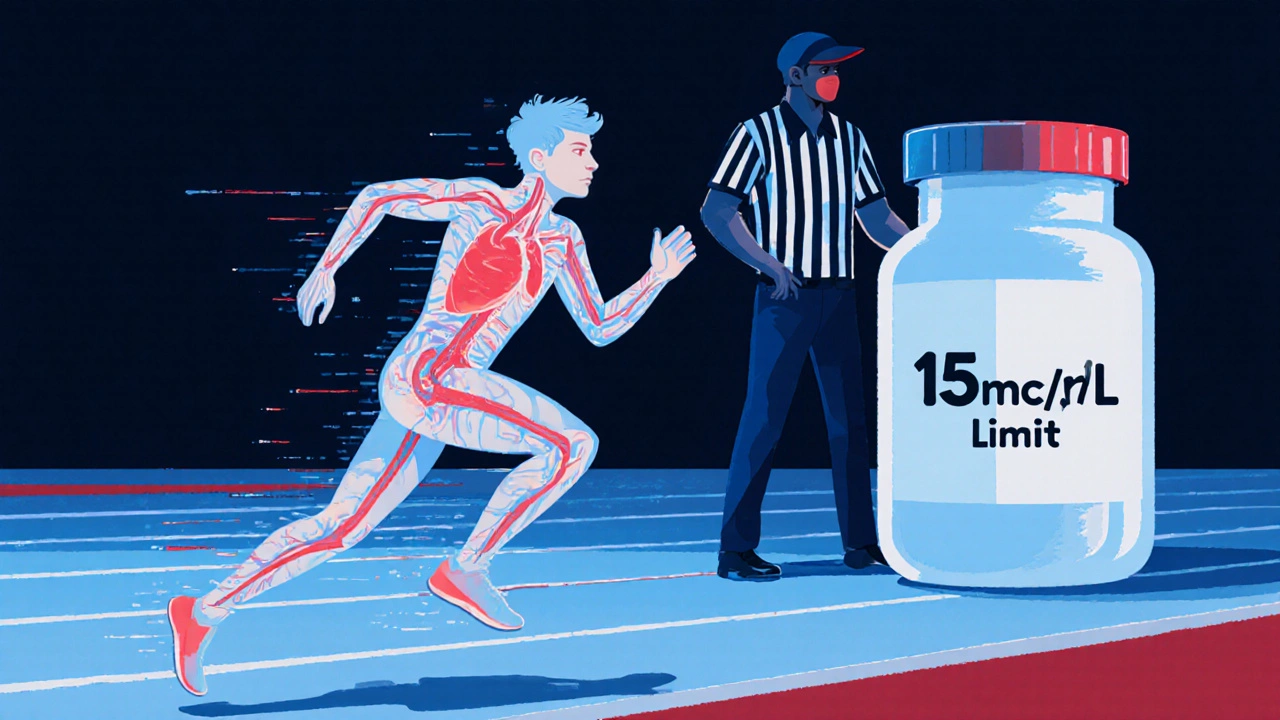
What Should You Do If You’re a College Athlete?
If you’re competing at the college level, here’s your simple checklist:- Never drink energy drinks unless you’ve checked the label with your athletic trainer.
- Look for NSF Certified for Sport or Informed-Sport on the bottle.
- Stick to water, electrolyte drinks, or one cup of coffee.
- Ask your team’s sports dietitian before trying any new supplement.
- When in doubt, don’t drink it.
There’s no shortcut to performance. No magic can replace sleep, recovery, and smart nutrition. Energy drinks might give you a quick buzz, but the cost-your eligibility, your health, your season-isn’t worth it.
What About High School Athletes?
High school rules vary by state. Some ban caffeine entirely. Others follow the NCAA guidelines. But even if your school doesn’t test, your body still reacts the same way. Too much caffeine can cause anxiety, heart palpitations, and sleep loss-all of which hurt performance over time.High school athletes who start using energy drinks early often carry the habit into college. That’s when the rules get serious. Better to build good habits now.
Final Thought: It’s Not About Restriction-It’s About Responsibility
College sports aren’t just about winning. They’re about preparing young athletes for life. Learning to make smart choices under pressure, even when no one’s watching, is one of the most valuable lessons.Energy drinks aren’t evil. Caffeine isn’t the enemy. But when you’re representing your school, your team, and your future-every choice matters. Skip the can. Stick to the plan. Your body, your grades, and your season will thank you.
Can college athletes drink coffee?
Yes, college athletes can drink coffee. One standard cup (8 oz) contains about 95mg of caffeine, which is well below the NCAA’s 1,500mg urine threshold. Many athletes use coffee as a legal, controlled source of caffeine before training or games. But drinking multiple cups in a short time can still push you over the limit, so moderation is key.
Are zero-sugar energy drinks allowed?
Zero-sugar energy drinks are not automatically allowed. Many still contain high levels of caffeine or banned stimulants like synephrine, yohimbine, or DMAA. Sugar content doesn’t determine safety or legality. Always check the ingredient list and look for NSF or Informed-Sport certification.
Why doesn’t the NCAA ban all caffeine?
The NCAA doesn’t ban all caffeine because low to moderate doses are common in everyday life-coffee, tea, chocolate, and some medications contain it. The goal isn’t to eliminate caffeine, but to prevent performance enhancement through excessive, concentrated doses. The 15 mcg/mL urine limit allows normal consumption while stopping abuse.
What happens if an athlete tests positive for caffeine?
A first-time positive test for caffeine above the NCAA limit results in a full-season suspension. The athlete cannot compete, practice with the team, or receive athletic scholarships during that time. They may appeal, but the burden of proof is on them to show the caffeine came from a legal source and was consumed unintentionally-which is rarely accepted.
Can athletes use energy drink brands that say "NCAA compliant"?
No. There’s no such thing as an "NCAA-compliant" energy drink. The NCAA doesn’t certify, approve, or endorse any products. If a brand claims this, it’s marketing hype. Only products with NSF Certified for Sport or Informed-Sport labels have been independently tested for banned substances. Always verify certification, not claims.

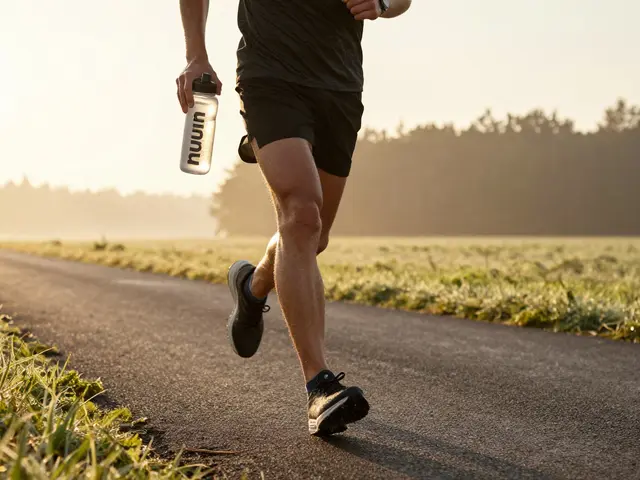
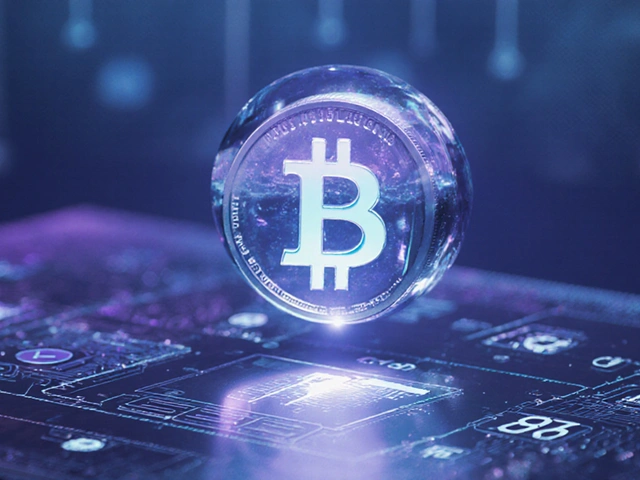
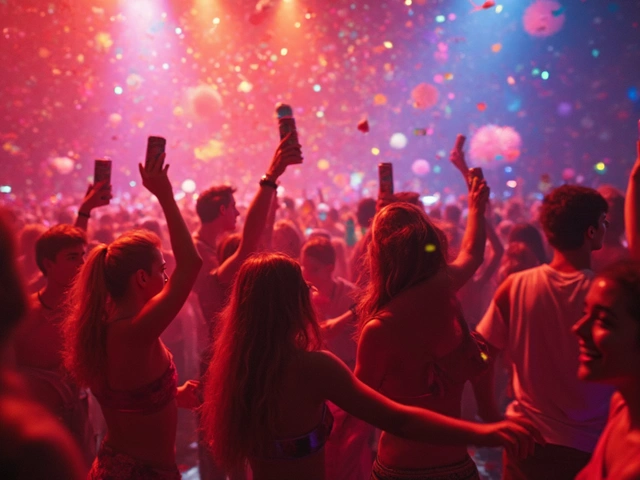
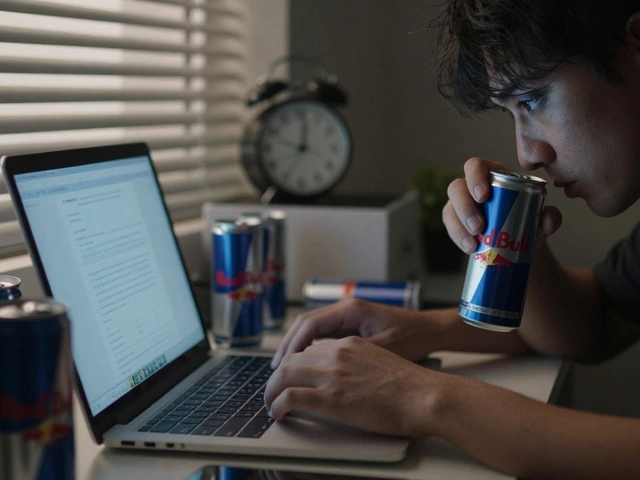
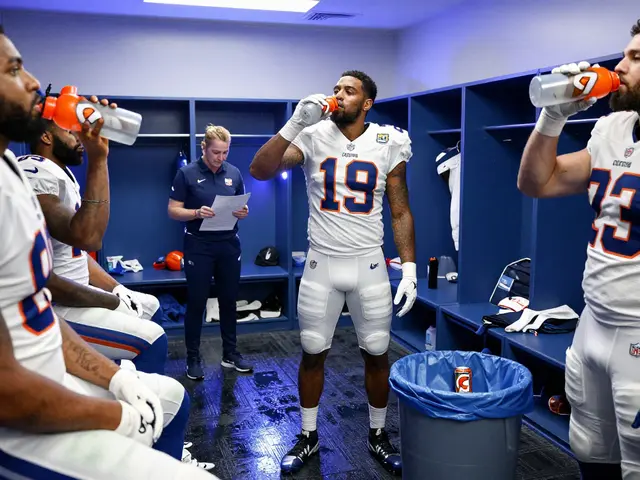
Comments (10)
Tiffany Ho
16 Nov 2025
I just started college track and I had no idea caffeine had a limit
One energy drink after finals and now I'm scared to even drink coffee
Thanks for the heads up
michael Melanson
18 Nov 2025
The NCAA rule makes sense but the real issue is how little info athletes get. I saw a guy on my team drink a pre-workout labeled 'natural energy boost' and he got suspended. No one warned him. It's not his fault.
lucia burton
18 Nov 2025
Let's be real here the NCAA isn't trying to be the caffeine police they're trying to prevent a public health disaster disguised as a performance enhancer
Imagine a 19 year old athlete chugging three energy drinks before a 100m sprint while already dehydrated from morning practice
That's not focus that's a cardiac event waiting to happen
And don't even get me started on the unregulated supplement industry that markets to impressionable kids with fake certifications and glow-in-the-dark labels
The real problem isn't caffeine it's the lack of education and the predatory marketing targeting young athletes who think they need a chemical crutch to be good enough
Denise Young
19 Nov 2025
Oh so now we're blaming energy drinks for poor life choices?
Let me guess next they'll ban alcohol because someone might mix it with a Red Bull and then get stupid at a party
Look I get the caffeine limit but this feels like a control fantasy wrapped in a safety blanket
And the fact that they allow caffeine tablets but not energy drinks is just ridiculous
It's the same chemical the same effect just packaged differently
Why not just teach athletes to manage their intake instead of playing gotcha with lab results?
Sam Rittenhouse
21 Nov 2025
I used to coach high school athletes and I can tell you the biggest danger isn't the caffeine it's the belief that they need something extra to compete
They think if they're not buzzing they're not ready
But the truth is the best performance enhancer is sleep the best recovery tool is hydration and the best focus aid is routine
When I started telling my kids to skip the drinks and just drink water and eat a banana they got stronger not weaker
It's not about restriction it's about retraining their mindset
Peter Reynolds
22 Nov 2025
I read this whole thing and I still don't know if I can have a Monster before a game
My trainer says yes but I'm scared to ask again
Fred Edwords
22 Nov 2025
The NCAA's caffeine limit is precisely 15 micrograms per milliliter of urine, which equates to approximately 1,500 milligrams of ingested caffeine within a short time window, not cumulative daily intake. This distinction is critical, as many users conflate total daily consumption with acute pharmacological exposure. Furthermore, the presence of metabolites such as paraxanthine in urine can influence detection thresholds, which is rarely discussed in public discourse.
Sarah McWhirter
23 Nov 2025
You know what's really banned? The truth.
Why do you think they don't test for sugar? Or sleep deprivation? Or 18-hour practice days?
They're not protecting you they're protecting the money
Energy drinks are the easiest scapegoat because kids buy them and no one in the NCAA drinks them
Meanwhile the coaches get their fancy protein powders with 'proprietary blends' that cost $80 a tub and nobody checks those
It's not about health it's about control and profit
And don't even get me started on how they let athletes take caffeine pills but not coffee because pills are easier to regulate and the NCAA gets kickbacks from pharmaceutical companies
Wake up people
Ananya Sharma
24 Nov 2025
This is a classic case of Western paternalism disguised as athlete protection. In India, we train with chai, street tea, and sometimes even coffee brewed with sugar and milk - and our athletes compete at world levels. The NCAA's obsession with 'banned substances' ignores cultural context, metabolic diversity, and the fact that caffeine is one of the most studied substances on Earth. Why is a 200mg caffeine tablet legal but a 250mg energy drink not? Because the former is controlled by the pharmaceutical-industrial complex, and the latter is sold by corporations they don't control. This isn't about fairness - it's about corporate power and the sanitization of performance. Your body doesn't care if the caffeine comes from a pill or a can. Your coach cares because they're scared of liability. And you? You're just the product.
Ian Cassidy
25 Nov 2025
Coffee's fine. Just don't chug it. And skip the pre-workout stuff with 'energy complex' on the label - that's just marketing speak for 'we hid something illegal'.